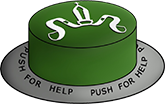Computer Science & ICT
KS3 Computer Science
Intent
It is the aim of the Computer Science department to enable students to develop skills and knowledge in Computer Science and Digital Technologies to prepare them for a future in a world where the use of this technology is fully embodied.
We aim to enable students to develop a love of learning for the subject and an understanding that there are no limits to their own development in programming and IT. An important life skill for anyone is to problem solve.
Using the strands of computational thinking will aid learners with their Computer Science studies. Students will be given guidance on threats within the ‘digital world’ so that it will be second nature to carry out all the necessary steps for their own safety as well as those around them.
Curriculum Sequence
|
Phase |
Computer Science |
|
Year 7 |
Digital Literacy: Introduction to the school network
Problem Solving: Encryption
Digital Literacy: System Security
Problem Solving: Programming Using Scratch
Data Representation: Using Binary
|
|
Year 8
|
Digital Literacy: Introduction to the School Network
Data Representation: Logic Gates
Digital Literacy: Computer Hardware
Problem Solving: Python Programming
Problem Solving: App Development
|
At KS3 students will be given the opportunity to develop their computer coding and digital technology skills. Learning the language of code is an important added bonus as students who develop their coding skills will be able to grasp the magic behind the computers. This will allow them to take their studies onto KS4 and to Further and Higher education if they desire and ultimately secure a career within a large range of industries.
The national curriculum for computing aims to ensure that all pupils:
- Can understand and apply the fundamental principles and concepts of computer science, including abstraction, logic, algorithms and data representation
- Can analyse problems in computational terms, and have repeated practical experience of writing computer programs in order to solve such problems
- Can evaluate and apply information technology, including new or unfamiliar technologies, analytically to solve problems
- Are responsible, competent, confident and creative users of information and communication technology.
Meeting the needs of SEND and Pupil Premium students
In line with whole-school priorities, the Computer Science department will ensure that SEND and pupil premium students are supported and challenged during lessons. The following are used throughout the department to ensure that these groups of learners are making progress:
- Teachers will ensure groups of learners are identified on seating plans
- Teachers will ensure that students understanding is checked regularly, through circulating the classroom and using hands-down questioning.
- Students will often work collaboratively, especially using ‘paired programming’.
- Modelling is used throughout the curriculum, as it provides students with both the structure and approach in developing programs.
- Programming tutorials will be provided to students so that they can work at their own pace.
Retention
The department are continuing to develop the curriculum and pedagogy by embedding retrieval exercises within the lessons, including the use of retrieval starters and class activities that link to prior learning.
The topics studied at KS3 also show progression, which allows for retrieval of knowledge. For example, Data Representation is covered across both Year 7 and 8, with a development from ‘using binary’ to ‘logic gates’. Students will also develop their knowledge from a block-based programming language to a text based languages, with the key programming constructs being revisited.
Homework
In Key stage 3 Computer Science students are encouraged to complete badges from the iDEA Award. This has allowed students to develop their skills and knowledge surrounding both Digital Literacy and Computer Science topics.
Assessment
Students are assessed through different methods, including multiple choice questions, peer-assessment of projects as well as end of unit tests. These end of unit tests are low-stakes and give students the opportunity to retrieve and apply key knowledge from the unit they have been learning.
GCSE Computer Science
GCSE Computer Science
Students are given the opportunity to study OCR GCSE Computer Science as one of their GCSE options.
At the heart of Computer Science is the concept of problem solving. Not only will pupils develop skills in creating efficient algorithms using Python, but they will be able to plan and comment upon other factors that could affect the performance of a program, such as the limitations of hardware. Computer Science will encourage your son to be resilient and determined, as many of the concepts of the subject are challenging and will often require enhancement.
As well as developing code, topics include flowcharts, pseudocode, logic gates, binary representation, hardware, and classification of software, encryption and emerging trends. Pupil understanding is assessed through internal coursework and external exams. Studying Computer Science can enhance many future careers including manufacturing, science, gaming, software development, communication, security, fashion, art and retail.




